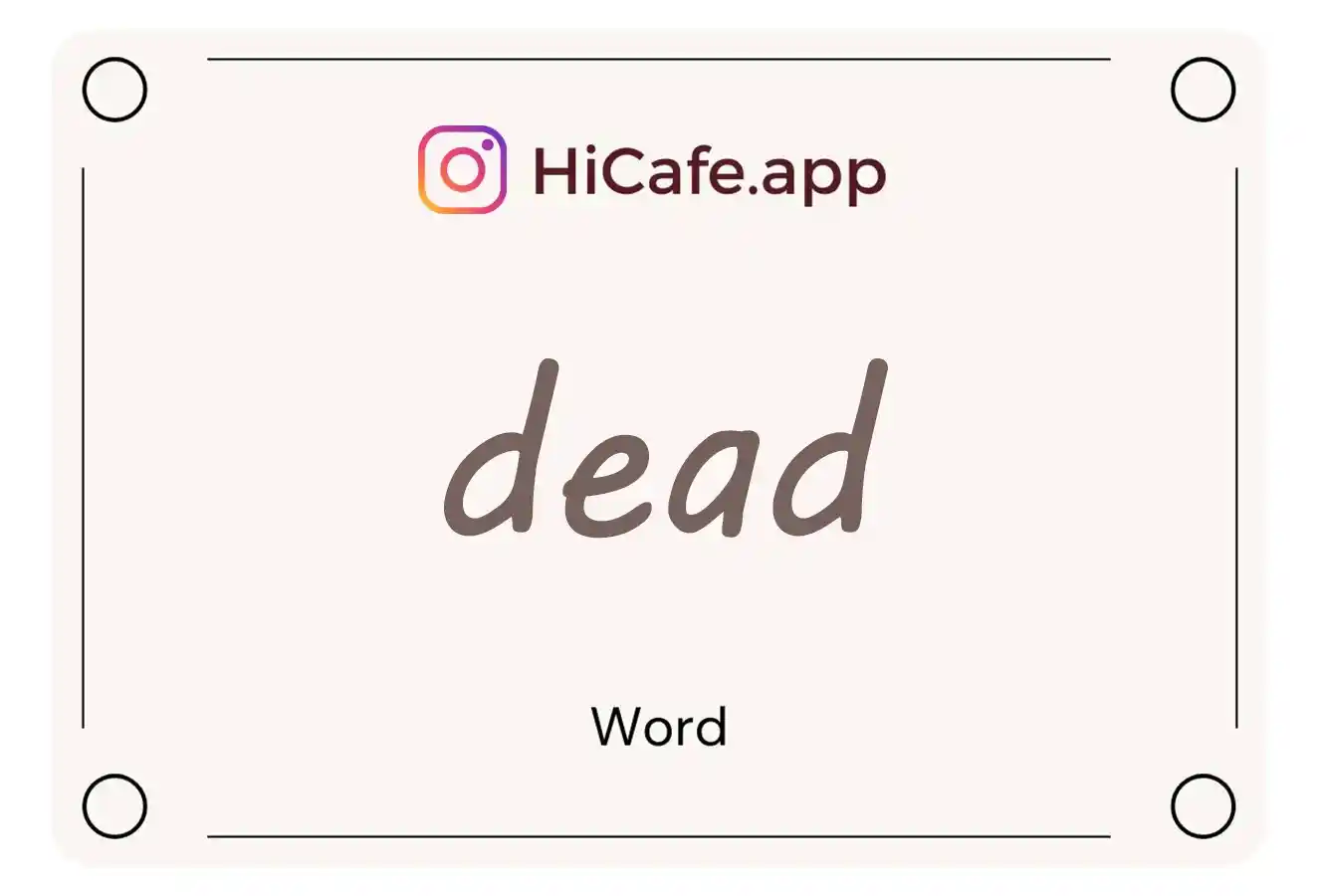Word of the Day: Dead
A living thing or person that stops living is dead. The opposite of “dead” is “alive.”
- The man is no longer alive. He’s dead.
- There’s a dead crow in my front yard.
- A cemetery is full of people who are dead.
- You should be respectful of the dead. (In this sentence, “dead” is a noun.)
- The police found a dead body inside the apartment. The person had been dead for several days.
This word is very popular when describing a person’s condition. If someone is tired or in trouble, or if a thing is not working, you can use this adjective.
- My car’s dead. (It doesn’t work.)
- The battery in my phone is dead.
- Traffic came to a dead stop. (It stopped moving.)
- I’m dead tired.
- We’re dead if we don’t get this assignment done on time.
- Uh oh. You’re dead. (You’re in trouble.)
The word “deadly” is an adverb, but it’s also an adjective. A thing that’s deadly causes death.
- The young woman drank a deadly poison.
- He’s deadly serious about his work.
- Two teenage girls were involved in a deadly car crash over the weekend.
There are a few other ways of using the word “dead.”
- A deadline is the time when something must be finished. You can’t go past a deadline.
- A dead end is the end of a road. You can’t continue because of an obstacle or there’s no more pavement.
- A dead end is also a situation in which a person can’t move forward or improve. When you’ve reached a dead end, you have to do something different.
- Law enforcement officials often say they want to capture a dangerous suspect dead or alive.
- Nocturnal animals come out in the dead of night. (the dead of night = the middle of the night when it’s very dark and very quiet)
Essential English Dictionary
Visit the Popular English Words Beginning with D page to see the list of all words starting with letter D. For seeing the HiCafe dictionary, visit the Popular English Words with Meaning page.



